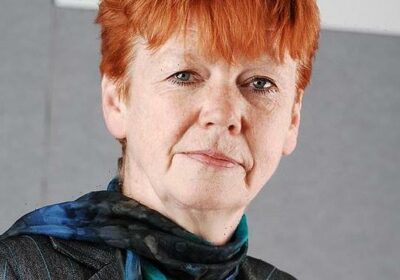'Prosecutors are refusing to take difficult rape cases to court'

Prosecutors are letting rapists walk free by refusing to take difficult cases to court, says Victims Commissioner as she brands rape ‘terrorism against women’
- Victims Commissioner says the CPS is not doing enough to prosecute rape cases
- Dame Vera Baird QC says harder cases are shunned to keep conviction rates up
- She described rape as ‘domestic terrorism’ with prosecutions down to just 1.6%
- A CPS spokesman said: ‘It is entirely untrue to claim we drop difficult rape cases’
The Victims Commissioner for England and Wales says that rapists are being allowed to walk our streets because prosecutors are shunning difficult cases in court.
Dame Vera Baird QC, who practised as a prosecuting barrister for decades, says that victims are currently being failed by the Crown Prosecution Service.
She described rape as ‘domestic terrorism’ against women and said the CPS should not be judged on conviction rates as it means they only want to take ‘rock solid cases’.
Prosecutions for rape dropped to just 1.6 per cent last year, their lowest in history – The Sun reports.
Dame Vera said: ‘They made a decision… to take fewer of what they called weaker cases in order to increase their conviction rate.
‘Historically the CPS have been judged on their conviction rates. They should not be judged in that way.
Dame Vera Baird QC says rapists are being allowed to walk free as the CPS is shunning harder cases to prosecute in court, a claim which it dismisses as ‘entirely untrue’
‘They should not set themselves out to win that competition if the cost is prosecuting half as many rapes as they did.
‘Many people are starting to see this and say – does the conviction rate matter? What matters is getting rapists off the street.
‘The CPS are very much responsible for that. They have not reversed that decision.’ In a searingly frank interview, Dame Vera also branded violence against women ‘domestic terrorism’ and called for it to be treated like the threat posed by ISIS.
‘Ministers should classify it as a strategic policing priority – like terrorism and knife crime – a move which would unlock desperately needed cash and attention, she said.
‘It is domestic terrorism – it is domestic abuse. A campaign of rape is also terrorism against women.’
There was a sharp rise of 61,158 rapes recorded in the first year of lockdown up to June 2021, according to the Office for National Statistics (ONS)
Rape cases soared to a new record last year in England and Wales – believed to have been exacerbated by lockdown, while the number of reported sex offences hit the second-highest level ever, figures revealed last month.
A CPS spokesman said: ‘It is entirely untrue to claim we drop difficult rape cases.
‘We will never hesitate to prosecute a case when our legal test is met, no matter how challenging, and are determined to see more cases going to court.’
How common is rape in the UK? Cases soared to a new record last year in England and Wales
Rape cases soared to a new record last year in England and Wales while the number of reported sex offences hit the second-highest level ever, new figures revealed last week.
There were 61,158 rapes recorded in the year to June, according to the Office for National Statistics (ONS).
This was the highest ever recorded annual figure to date and included 17,285 offences between April and June – also the highest quarterly figure.
The second highest number of sexual offences was also recorded in the 12 months to June (164,763), an 8 per cent increase compared to the previous year.
This was driven by the highest ever recorded quarterly figure (48,553) for the same three-month period in 2021. Rape accounted for 37 per cent of all sexual offences recorded by police.
Nick Stripe, head of crime statistics at the ONS, said the police figures show a ‘large increase in the recording of rape and sexual offences during the latest April to June 2021 quarter’, but urged caution when interpreting the data.
He added: ‘The rise could be due to an increase in victim reporting as lockdowns eased, an increase in the number of victims, or to an increase in victims’ willingness to report incidents, potentially as a result of high-profile cases and campaigns in recent times.’
The police recorded 846,235 offences (not including fraud crimes) flagged as domestic abuse-related for the 12-month period, representing a 6% increase from 813,958 offences in the previous year.
This included 687,328 offences of violence against the person labelled as domestic abuse-related, a 7 per cent increase compared to the previous year.
The ONS said it is ‘difficult to determine’ the levels of domestic abuse in the country using police recorded data because of changes in the way the crimes are reported so ‘we cannot conclude whether there has been an increase in the number of victims of domestic abuse’.
But it added: ‘Data from victim services suggests that experiences of domestic abuse may have intensified during periods of national lockdown and that victims faced difficulties in safely seeking support under these conditions.’
The ONS stressed domestic abuse-related crimes and sexual offences recorded by police ‘do not provide a reliable measure of trends in these types of crime’ as improvements in police recording practices and increased reporting by victims have contributed to rises in recent years.’
It added: ‘The figures do, however, provide a good measure of the crime-related demand on the police.’
Source: Read Full Article

